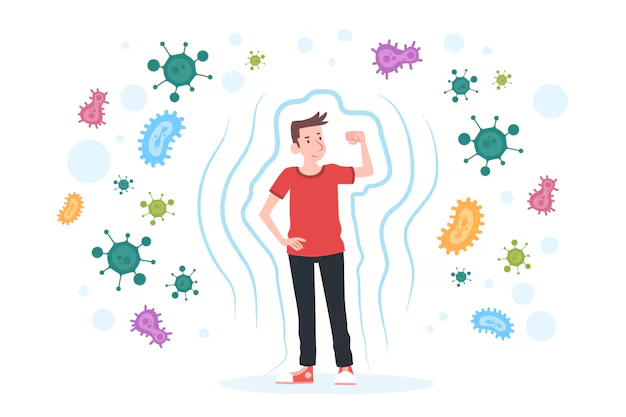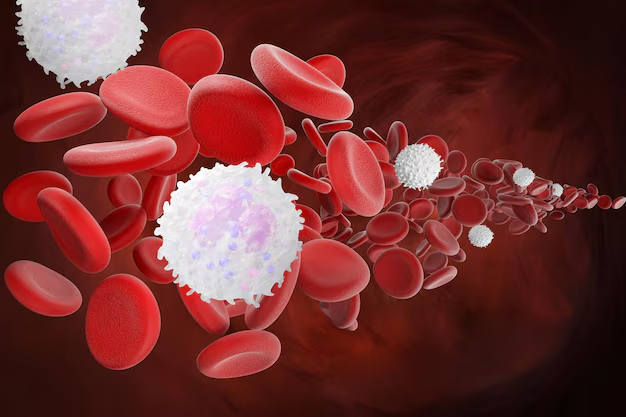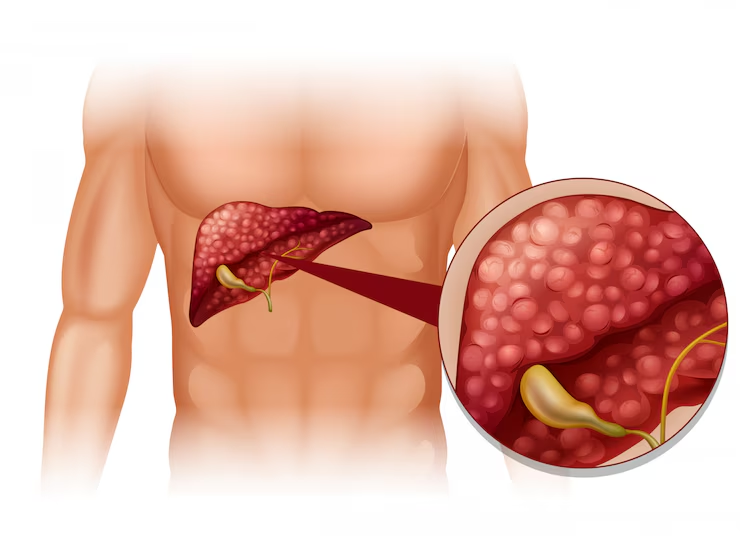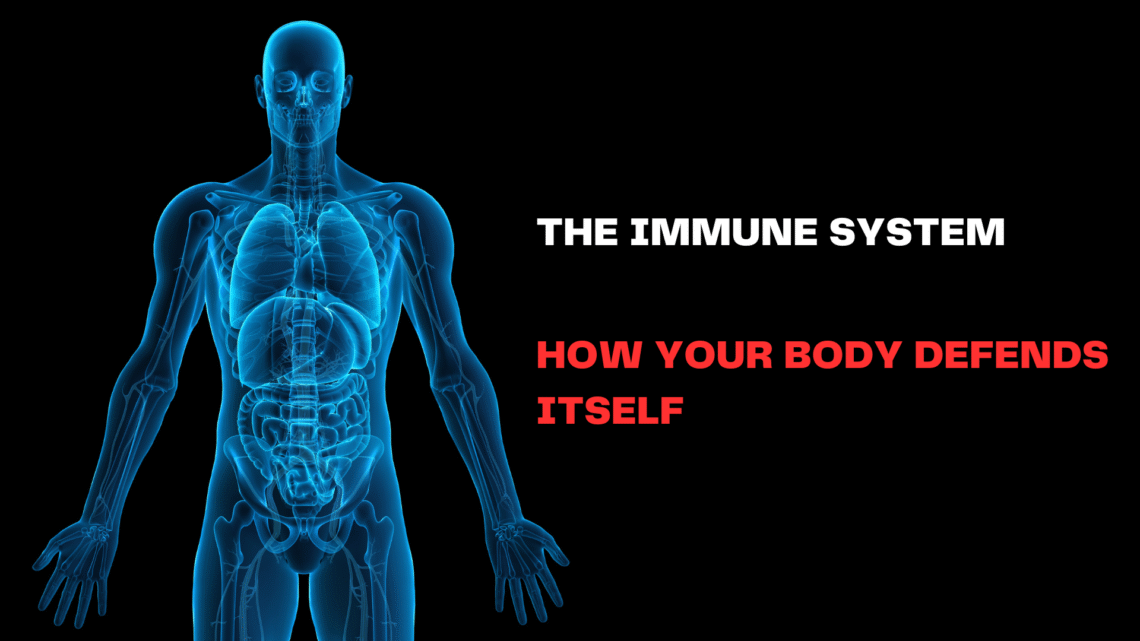Introduction
The human body is under constant attack—from bacteria, viruses, parasites, fungi, and environmental toxins. Yet, we rarely fall seriously ill. Why? Because of our immune system, a brilliant, complex defense mechanism working silently in the background to protect our health 24/7.
This article explores everything about the immune system—from how it works, the key players involved, factors that weaken or strengthen it, and the top 8 proven ways to support your immunity naturally.
🧬 What Is the Immune System?

The immune system is a sophisticated and essential defense mechanism that protects the body from harmful invaders such as bacteria, viruses, fungi, and parasites. It acts as your internal security system, constantly monitoring for any foreign substances that may cause illness or infection.
This powerful system is composed of a vast network of cells, tissues, organs, and proteins that work in harmony. Key components include white blood cells, the lymphatic system, bone marrow, the spleen, and the thymus. These parts of the immune system identify and destroy harmful pathogens before they can spread and cause damage.
The immune system not only fights off infections but also plays a vital role in detecting abnormal or damaged cells, helping prevent chronic diseases. Maintaining a healthy immune system is crucial for overall well-being, as it ensures your body can respond quickly and effectively to health threats every day.
Functions of the Immune System:
- Detection of foreign substances like pathogens or toxins.
- Neutralization and elimination of invaders.
- Memory building, so it responds faster if the same germ attacks again.
🧩 Major Components of the Immune System
To fully grasp how the immune system functions, it’s important to look at its core components. This powerful biological system is made up of specialized organs, cells, and molecules that work together to identify and eliminate harmful invaders. Without these elements working in harmony, the immune system cannot effectively protect the body.
One of the key elements of the immune system is white blood cells, also known as leukocytes. These cells are constantly patrolling the bloodstream and lymphatic system, searching for signs of infection. Other crucial parts include the lymph nodes, spleen, thymus, and bone marrow—all of which help create, store, and deploy immune cells.
In addition to these structures, the skin and mucous membranes act as the body’s first line of defense, while the gut microbiome plays a supporting role in regulating immune responses. Understanding these parts helps explain how the immune system keeps the body safe and healthy every day.
1. White Blood Cells (Leukocytes)

Within the immune system, certain cells serve as the body’s primary line of defense. These cells are primarily located in the bloodstream and lymphatic system, where they actively patrol for harmful invaders such as bacteria, viruses, and other pathogens. Their primary function is to detect and neutralize threats before they can spread and cause illness.
Among the most vital components of the immune system are white blood cells, also known as leukocytes. These include several types with specialized roles. For example, lymphocytes—such as T cells and B cells—either destroy infected cells or produce antibodies to target specific pathogens. Phagocytes, another type, engulf and digest invaders, cleaning up the affected areas of the body.
This coordinated defense mechanism ensures that the immune system can respond quickly and accurately to infections. By understanding the types and roles of these immune cells, we gain a clearer picture of how the body maintains its health and balance.
- Lymphocytes (T cells & B cells) – attack invaders directly or produce antibodies.
- Phagocytes – engulf and digest harmful microbes.
2. Lymphatic System
An essential part of the immune system is the lymphatic system, a vast network of vessels and specialized organs that play a central role in defending the body. This system serves as a transportation route for lymph, a clear fluid rich in immune cells, particularly white blood cells like lymphocytes. These immune cells constantly move through the lymphatic system to identify and combat infections.
Key organs within this network include the lymph nodes, spleen, and thymus. Lymph nodes act as filters, trapping pathogens and alerting immune cells to respond. The spleen stores white blood cells and filters the blood, helping to remove old or damaged cells. The thymus is where T cells mature and learn to distinguish between the body’s own cells and foreign threats.
Together, these components of the immune system work in unison to detect, transport, and eliminate harmful invaders, making the lymphatic system a crucial line of defense in protecting overall health.
3. Bone Marrow
One of the most critical origins of the immune system is the bone marrow, the soft, spongy tissue found inside certain bones. This is the birthplace of all immune cells. Within the bone marrow, undifferentiated stem cells develop into the specialized defenders that make up your body’s protective network.
These stem cells mature into various types of immune cells, including lymphocytes and phagocytes, each with a unique function in fighting infection. B cells, for example, mature directly in the bone marrow and are essential for producing antibodies. Other immune cells, like T cells, begin their journey here before migrating to the thymus for further development.
The bone marrow’s role in the immune system is foundational. Without it, the body would be unable to produce the cells needed to identify and destroy harmful invaders. Supporting bone marrow health is, therefore, a crucial step in maintaining a strong and responsive immune system.
4. Thymus
A vital organ within the immune system is the thymus, which plays a critical role in developing immune function. Although small and located behind the breastbone, the thymus is where a specific type of white blood cell—T-cells—undergoes essential training. These cells are named after the thymus because this is where they mature and gain their disease-fighting abilities.
Inside the thymus, immature T-cells are carefully educated to recognize the difference between the body’s own cells and harmful foreign invaders. This ability to distinguish “self” from “non-self” is essential. Without it, the immune system could mistakenly attack the body’s own tissues, leading to autoimmune diseases.
The proper functioning of the thymus ensures that the immune system can respond accurately to threats while avoiding damage to healthy cells. A well-trained army of T-cells is a key part of immune defense, and the thymus ensures this part of the system is prepared and precise.
5. Spleen
The spleen is an important organ within the immune system, serving multiple essential functions that support the body’s defense against illness. Located in the upper left part of the abdomen, the spleen acts as a powerful filter for the blood, helping to detect and eliminate foreign substances and damaged cells.

One of the spleen’s primary roles is to store white blood cells, particularly lymphocytes and macrophages, which are vital in identifying and destroying bacteria, viruses, and other pathogens. When an infection is detected, the spleen releases these immune cells into the bloodstream to fight off the invaders quickly and effectively.
In addition to fighting infection, the spleen also removes old or malfunctioning red blood cells, helping to maintain a healthy balance in the blood. As a central player in the immune system, the spleen ensures that both immune surveillance and cleanup processes are continuously running to protect the body from disease.
6. Mucous Membranes
An essential part of the immune system includes the mucous membranes that line the body’s entry points—such as the mouth, nose, lungs, and digestive tract. These tissues act as the first barrier against harmful microorganisms, providing immediate defense when pathogens attempt to enter the body.
These membranes produce mucus, a sticky substance that traps dust, bacteria, viruses, and other potential threats. Tiny hair-like structures called cilia, found in areas like the respiratory tract, help move the trapped particles out of the body. This mechanical action works alongside chemical components such as enzymes and antibodies present in saliva and mucus.
By capturing and eliminating microbes at the source, mucous membranes help reduce the workload on the internal components of the immune system. They are a vital part of innate immunity, preventing many infections before they even reach the bloodstream or organs, thereby strengthening the body’s natural line of defense.
🛡️ Types of Immunity
The immune system is a highly organized network that protects the body through two primary branches: innate immunity and adaptive immunity. Each branch plays a unique and complementary role in defending against disease-causing organisms and maintaining overall health.
Innate immunity is the first line of defense in the immune system. It is non-specific and responds quickly to any perceived threat. This includes physical barriers like the skin, mucous membranes, and internal defenders such as white blood cells and inflammation responses. It acts fast but does not have memory of past infections.
Adaptive immunity, on the other hand, is more specific and intelligent. It develops over time, learning to recognize and remember particular pathogens. Through the production of antibodies and activation of T and B cells, this branch of the immune system ensures a stronger, faster response if the same invader attacks again. Together, both branches offer full-spectrum immune protection.
🔹 1. Innate Immunity (First Line of Defense)
- Non-specific and fast-acting.
- Includes skin, mucus, inflammation, and natural killer cells.
🔹 2. Adaptive Immunity (Acquired Immunity)
- Develops over time.
- Targets specific invaders.
- Involves B-cells (make antibodies) and T-cells (kill infected cells).
This system remembers past infections, enabling quicker responses in the future—a process called immunological memory.
⚠️ What Weakens the Immune System?
Several factors can impair immune function:
- Poor nutrition
- Lack of sleep
- Chronic stress
- Sedentary lifestyle
- Overuse of antibiotics
- Smoking and alcohol
- Age-related decline
- Environmental toxins
💪 Top 8 Tips to Strengthen the Immune System
✅ 1. Eat a Nutrient-Rich Diet

A strong immune system starts with a healthy gut. The digestive tract is home to trillions of beneficial bacteria that not only aid digestion but also communicate directly with immune cells. These microbes help regulate immune responses, reduce inflammation, and prevent the growth of harmful pathogens.
Eating a balanced, nutrient-rich diet plays a crucial role in supporting this gut-immune connection. Foods loaded with essential vitamins, minerals, and antioxidants provide the fuel your immune system needs to function optimally. Nutrients like vitamin C, vitamin D, zinc, and selenium are especially important for maintaining the strength and responsiveness of white blood cells.
Fruits, vegetables, whole grains, lean proteins, and fermented foods like yogurt or kefir can improve both gut and immune health. When your gut is nourished and diverse, your immune system becomes more resilient, making it better equipped to defend against everyday illnesses and long-term disease threats.
Key nutrients:
- Vitamin C (citrus, kiwi, bell peppers)
- Vitamin D (sunlight, eggs, fatty fish)
- Zinc (nuts, seeds, whole grains)
- Iron, selenium, and folate
- Probiotics (yogurt, kefir, kimchi)
- Prebiotics (onion, garlic, bananas)
📝 Avoid: processed foods, excess sugar, and trans fats—they promote inflammation and suppress immunity.
✅ 2. Prioritize Sleep
Quality sleep is one of the most powerful tools for maintaining a healthy immune system. While you rest, your body enters a recovery mode where vital repair and restoration processes take place. Sleep isn’t just about feeling rested—it directly impacts how well your body can defend itself.
During deep stages of sleep, your body produces cytokines, which are proteins that help regulate the immune system’s response to infections and inflammation. These molecules signal immune cells to take action when threats are detected, making sleep essential for immune communication and coordination.
Chronic sleep deprivation weakens your immune system, lowering your resistance to illness and slowing recovery times. Adults should aim for 7–9 hours of quality sleep each night. Establishing a consistent sleep schedule, minimizing screen time before bed, and creating a calming bedtime routine can significantly improve sleep and, in turn, strengthen your overall immunity.
Lack of sleep:
- Reduces immune cells
- Increases inflammation
- Makes you more susceptible to infection
🛌 Aim for 7–9 hours of sleep each night. Create a calming bedtime routine and avoid blue light exposure before sleep.
✅ 3. Manage Stress
Managing stress is vital for maintaining a strong immune system. While short-term stress can occasionally boost immune activity, chronic stress has the opposite effect. When stress becomes constant, it disrupts the body’s natural balance and affects several biological systems, including immunity.
Prolonged stress raises levels of cortisol, a hormone that—when persistently elevated—suppresses the immune system’s ability to function effectively. This suppression can reduce the number of infection-fighting white blood cells, impair communication between immune cells, and slow down your body’s natural healing processes. As a result, you become more vulnerable to colds, infections, and even chronic diseases.
Incorporating daily stress-reducing practices like meditation, deep breathing, physical activity, and quality sleep can help regulate cortisol and support immune health. By reducing chronic stress, you give your immune system the space it needs to stay balanced, responsive, and ready to protect you from everyday health threats
Ways to reduce stress:
- Meditation & mindfulness
- Yoga or tai chi
- Nature walks
- Deep breathing
- Journaling
🧠 Mental health = immune health. Make time for emotional wellness.
✅ 4. Stay Physically Active
Regular, moderate exercise is one of the most effective ways to support a healthy immune system. Physical activity boosts circulation, allowing blood and lymph—the fluid that carries immune cells—to move more efficiently throughout the body. This increased flow helps immune cells reach areas where they are needed most, enhancing the body’s natural defense response.
Exercise also helps regulate inflammation, a key factor in immune health. Chronic inflammation can weaken the immune system, making the body more vulnerable to illness. Engaging in activities like brisk walking, cycling, swimming, or yoga can help reduce systemic inflammation and promote immune balance.
Moreover, consistent movement helps manage stress and improve sleep—both of which are critical for a strong immune system. While intense overtraining may suppress immune function, moderate exercise performed regularly strengthens immune surveillance and keeps your body better equipped to fight off infections and maintain long-term health.
💪 Recommended:
- 30 minutes of moderate activity (walking, cycling, swimming) 5x/week
⚠️ Caution: Overtraining can suppress immunity. Balance is key.
✅ 5. Hydration is Crucial
Water is vital for every system in your body, including immunity.
Benefits:
- Helps in the production of lymph (which carries immune cells)
- Keeps mucous membranes moist and resistant to microbes
🥤 Aim for 8–10 glasses per day. Herbal teas and clear soups are also hydrating.
✅ 6. Don’t Smoke, Limit Alcohol

Smoking is one of the most damaging habits for your overall health and especially harmful to the immune system. The chemicals found in tobacco smoke, including nicotine, carbon monoxide, and tar, impair immune cell function and damage tissues that play vital roles in immune defense. Even occasional smoking weakens the body’s ability to fight off infections effectively.
Long-term smoking leads to chronic inflammation and compromises the respiratory tract, making it easier for bacteria and viruses to invade the lungs. It disrupts the normal activity of white blood cells and suppresses the protective mechanisms of the immune system, leaving you more susceptible to colds, flu, pneumonia, and other illnesses.
Quitting smoking can significantly improve your immune system over time. As the body begins to repair itself, immune cells recover their function, and inflammation levels drop. This creates a stronger, more resilient immune response and enhances your ability to maintain long-term health.
- Harms immune cells
- Increases risk of respiratory infections
- Slows healing
Alcohol:
- Reduces white blood cell activity
- Alters gut flora
🚫 Quit smoking entirely and limit alcohol to 1–2 servings per week.
✅ 7. Get Vaccinated
Vaccines play a vital role in strengthening the immune system by preparing it to recognize and combat specific pathogens without causing illness. They work by introducing a harmless component of a virus or bacteria—such as a protein or inactivated form—that triggers an immune response. This allows the body to “practice” defending itself without facing the actual threat.
This training activates the adaptive immune system, which creates specialized cells called memory T-cells and B-cells. These cells remember the invader, enabling the immune system to respond more rapidly and efficiently if exposed to the real pathogen in the future. As a result, vaccination reduces the risk of severe disease and helps control the spread of infection.
Routine vaccines like those for influenza, measles, COVID-19, and hepatitis are essential tools in public health. By keeping your immune system prepared and alert, vaccines offer long-term protection and contribute to a healthier, more resilient body.
Common vaccines:
- Influenza
- Tetanus
- Hepatitis
- COVID-19
- Pneumonia (for seniors)
🩺 Stay up to date with your doctor’s recommended vaccine schedule.
✅ 8. Use Supplements Smartly
While a healthy diet should always be the foundation of strong immunity, sometimes food alone may not provide all the nutrients your body needs. This is where supplements can play a helpful role. They are especially useful for individuals with deficiencies, dietary restrictions, or increased nutritional needs due to age, illness, or lifestyle.
Certain supplements have been shown to support the immune system by enhancing the body’s ability to fight infections and maintain balance. Common options include vitamin C, vitamin D, zinc, probiotics, and herbal extracts like elderberry and echinacea. These nutrients are essential for white blood cell function, inflammation control, and immune cell communication.
However, supplements should never replace whole foods or be taken in excess. It’s best to consult with a healthcare provider to identify what your body truly needs. When used wisely, supplements can help bridge nutritional gaps and strengthen your immune system effectively.
Helpful options:
- Vitamin C – antioxidant & immune booster
- Vitamin D3 – reduces respiratory infections
- Zinc – supports white blood cells
- Elderberry – antiviral properties
- Echinacea – immune-boosting herb
⚠️ Tip: Use only as needed and consult a healthcare professional.
🧠 How the Immune System “Learns”
One of the most remarkable features of the immune system is its ability to remember past encounters with harmful invaders. When your body is exposed to a virus or bacteria for the first time, the adaptive immune system kicks into action, launching a targeted response to eliminate the threat. During this process, it creates specialized cells known as memory cells.
These memory cells are long-lasting and remain dormant in the body after the infection has been cleared. Their job is to “remember” the specific pathogen so that if it reappears, the immune system can respond much more rapidly and effectively. This response often includes the faster production of antibodies, which helps neutralize the pathogen before it causes illness.
This intelligent memory-based response is the foundation of how vaccines work. By creating immunity without causing disease, the immune system becomes stronger and better prepared for future exposures.
This is how:
- Natural infection provides memory.
- Vaccines mimic this process safely.
👶 Immunity Across Life Stages
Infants:
- Get passive immunity from the placenta and breast milk
- Developing immune system until around age 2
Adults:
- Peak immune strength in young adulthood
- Impacted by lifestyle, environment, and stress
Seniors:
- Immune response slows with age
- Greater risk of infections and chronic inflammation
🦠 Common Immune Disorders
Autoimmune Diseases:
- Immune system attacks healthy tissues
- Examples: rheumatoid arthritis, lupus, type 1 diabetes
Allergies:
- Overreaction to harmless substances (pollen, peanuts, dust)
Immunodeficiencies:
- Congenital (born with) or acquired (e.g., HIV)
- Immune system fails to protect against infection
🌎 Immunity and the Microbiome
Your gut microbiome, which consists of trillions of beneficial bacteria residing in your digestive tract, plays a crucial role in maintaining a healthy immune system. These microorganisms aren’t just involved in digestion—they actively communicate with immune cells and help regulate how your body responds to potential threats.
A balanced and diverse gut microbiome supports immune function by producing short-chain fatty acids, reducing inflammation, and strengthening the gut lining. This barrier prevents harmful bacteria and toxins from entering the bloodstream, which could otherwise trigger an immune response. When the microbiome is healthy, it helps train the immune system to distinguish between harmful invaders and harmless substances.
Disruptions in the gut microbiome, often caused by poor diet, stress, or overuse of antibiotics, can weaken the immune system. Supporting your gut health through a fiber-rich diet, fermented foods, and prebiotics can enhance immunity and improve your body’s ability to fight off infections.
How?
- Educates immune cells
- Regulates inflammation
- Protects against harmful pathogens
Support your gut:
- Eat fiber-rich foods
- Avoid antibiotics unless necessary
- Include fermented foods and prebiotics
🧪 Breakthrough Research in Immunology
In recent years, modern science has made incredible strides in understanding how the immune system works. Through advanced research, scientists are uncovering the intricate ways immune cells detect, respond to, and remember harmful invaders. This progress is helping us better prevent, treat, and even cure illnesses that were once difficult to manage.
Breakthroughs in areas like genetics, immunotherapy, and microbiome research are revolutionizing how we approach immune health. For example, we now understand more clearly how the immune system interacts with the gut, how vaccines train adaptive immunity, and how immune responses can be tailored in treatments for cancer and autoimmune diseases.
As science continues to evolve, we are gaining powerful new tools to support the immune system naturally and medically. This knowledge allows individuals and healthcare providers to make more informed decisions that can strengthen immunity and improve overall well-being in today’s fast-changing world.
Emerging fields:
- Immunotherapy: used to treat cancer by boosting natural defenses
- mRNA vaccines: proven effective during the COVID-19 pandemic
- Gut–brain–immune axis: revealing how mental health impacts immunity
📌 Recap: Your Immune-Boosting Action Plan
- Eat nutrient-dense whole foods
- Sleep 7–9 hours a night
- Reduce daily stress
- Exercise moderately and regularly
- Stay hydrated
- Avoid smoking and limit alcohol
- Stay up to date on vaccinations
- Use supplements if needed
📝 Conclusion
The immune system is one of the most fascinating, dynamic, and powerful systems in the human body. It protects us silently, yet demands our care and support to function optimally.
You don’t need expensive products or gimmicks. What your immunity truly needs is consistency—a lifestyle filled with balanced nutrition, deep rest, active movement, peace of mind, and healthy choices.
When you take care of your body, your immune system takes care of you.
1. What is the immune system and why is it important?
The immune system is your body’s defense network made up of cells, tissues, and organs that protect you from harmful invaders like bacteria, viruses, and fungi. It identifies and neutralizes these threats to keep you healthy. Without it, the body would be vulnerable to constant infections and diseases.
2. How can I naturally boost my immune system?
You can strengthen your immune system naturally by eating a balanced diet rich in fruits and vegetables, staying physically active, getting enough sleep, managing stress, staying hydrated, avoiding smoking, and limiting alcohol. Taking supplements like vitamin C, vitamin D, and zinc can also help when needed.
3. Does stress really affect the immune system?
Yes, chronic stress can significantly weaken the immune system. It increases cortisol levels, which suppress immune function and make you more susceptible to illness. Reducing stress through mindfulness, exercise, and rest helps maintain a strong immune response.
4. What role does the gut play in immune health?
The gut is a key player in immune system regulation. The gut microbiome—trillions of beneficial bacteria—helps train immune cells, manage inflammation, and prevent harmful microbes from spreading. A healthy gut supports a more resilient immune response.
5. Why are vaccines important for the immune system?
Vaccines help the immune system by training it to recognize and respond to specific pathogens without causing the actual disease. They create memory cells that allow the body to fight off infections faster and more effectively if exposed again in the future.





